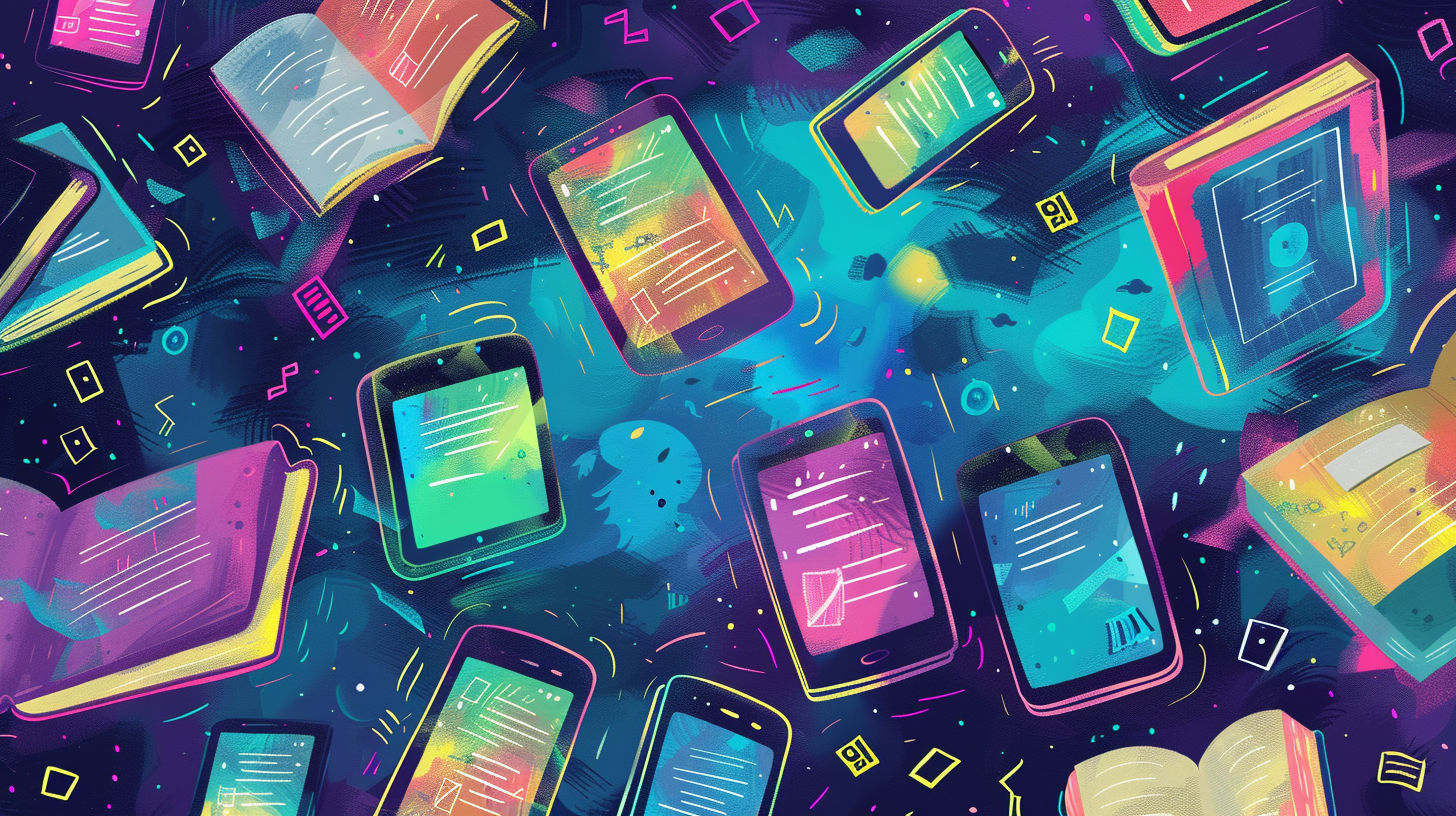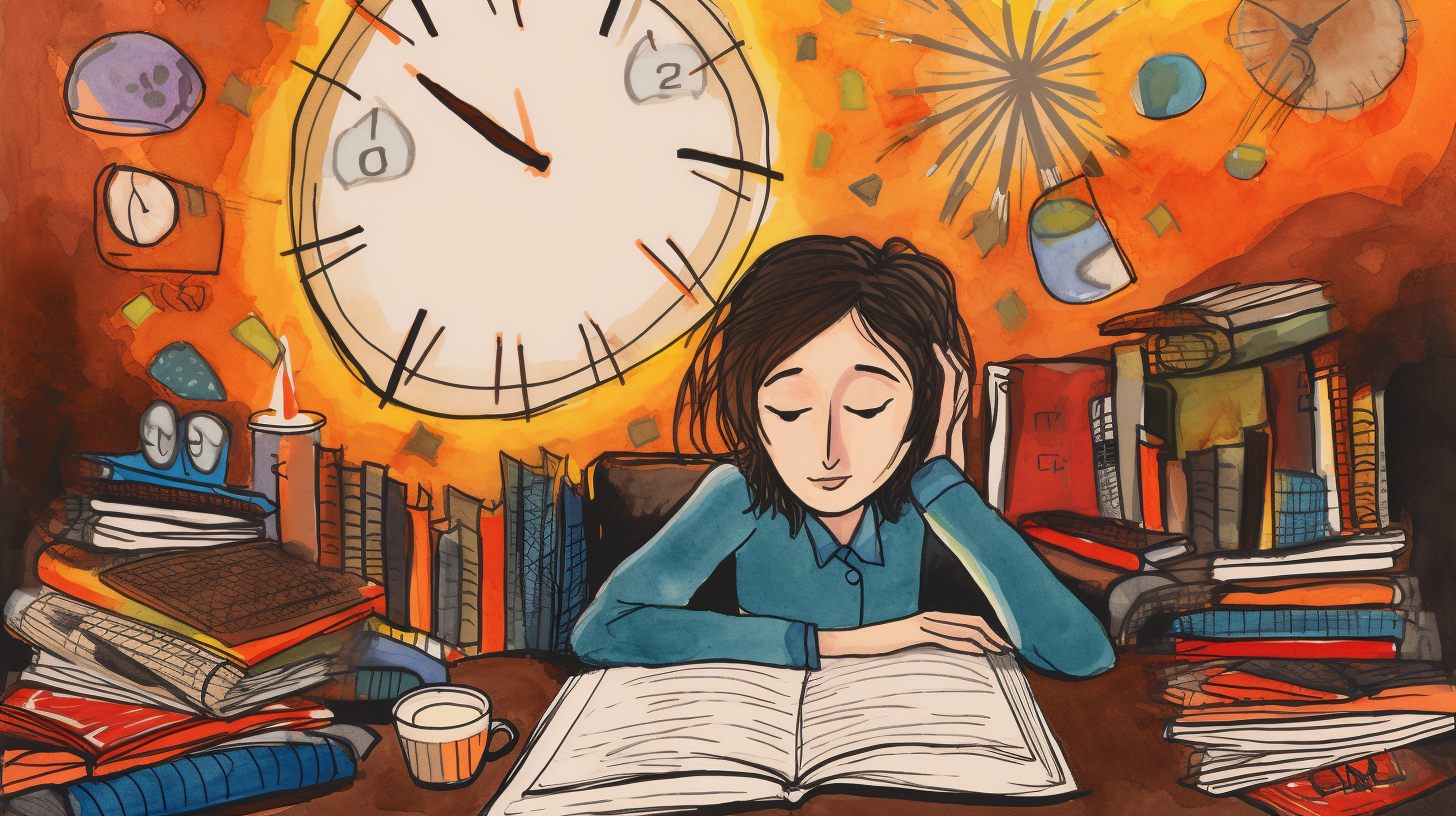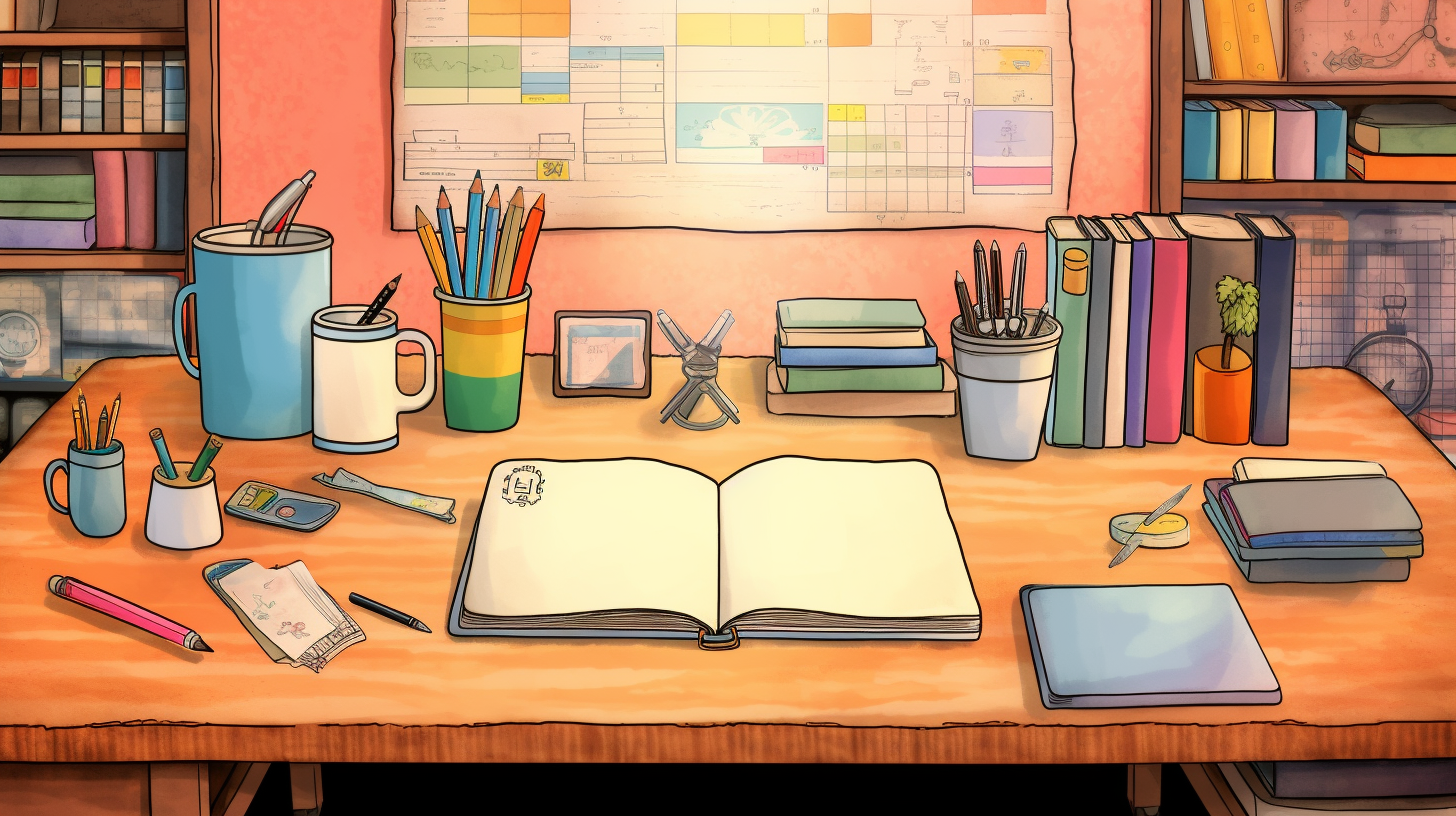Struggling with the phrase “I hate reading” more often than you’d like? You’re not alone. Many find themselves at odds with books, whether due to past difficulties or a lack of interest. But what really lies behind this aversion? In this text, we’ll investigate the common reasons why people develop a distaste for reading.
Even though there are challenges, reading has undeniable benefits that can enrich your life in countless ways. We’ll explore these advantages, helping you see reading in a new light. Plus, don’t miss out on our practical tips to nurture a love for reading, even if it’s felt out of reach until now.
Reasons why people hate reading
If you’ve ever thought, “I hate reading books,” or “Why do I hate reading so much,” you’re not alone. A significant number of people share this sentiment. Here’s why this may happen:
- Associations with Academic Pressure: For many, the dislike for reading stems from school experiences. The requirement to digest and analyze texts for grades can transform reading into a chore rather than a pleasure. If this sounds like you, remember that you’re not being graded now, and reading can be enjoyable.
- Lack of Engaging Content: The phrase “I don’t like reading books” often originates from not finding the right material. With reading lists often lacking variety, students may develop a distaste for reading, not having found books that resonate with their interests.
- Time Constraints: In the fast-paced world, finding time can be tough. You might say, “I don’t like to read” because you believe you don’t have the time. Audiobooks can be a solution, fitting into busy schedules and allowing multitasking.
- Difficulty Concentrating: “Why don’t I like reading?” Some find it hard to focus on a page of text due to concentration issues. Audiobooks, with their ability to engage the listener’s imagination and attention, might be a great alternative.
- Lack of Accessibility: For those who say, “I hate books,” physical books may be cumbersome or hard to obtain. Digital audiobooks are more accessible, providing immediate access with just a few clicks.
- Preference for Visual or Auditory Learning: If you find yourself saying, “I don’t like reading books, but I want to,” consider your learning style. Visual or auditory learners often find more enjoyment and understanding through listening rather than reading text.
Remember, finding the right format for consuming literature can make all the difference. With audiobooks, “I hate reading” can turn into “I love listening,” allowing you to reap the benefits of literature in a way that suits your lifestyle.
Benefits of reading
Improves Vocabulary and Language Skills
When you listen to an audiobook, you’re exposed to a rich tapestry of words and phrases. This broadens your vocabulary more efficiently than if you were to stick only to materials you’re comfortable reading. You’ll hear correct pronunciations, which can be helpful, especially if you’re one to say “I hate reading” due to unfamiliarity with text complexities. Audiobooks can be a game-changer in this regard, as they convert “I don’t like reading” into a journey of linguistic discovery.
Enhances Critical Thinking and Problem-Solving Abilities
Listening to the complexities of a plot, understanding character development, and following narrative arcs in audiobooks train your brain to think critically. Each time you predict an outcome or analyze an event, your problem-solving abilities sharpen. If you’ve thought, “Why do I hate reading books,” consider that perhaps an active engagement through listening might be your key to a more critical and analytical mindset.
Reduces Stress and Promotes Relaxation
If the phrase “I hate books” resonates with you, perhaps it’s’ the act of reading that doesn’t sit well with you rather than the content itself. Audiobooks invite you to relax and listen, removing the strain and visual effort of reading. They offer the perfect companion for stress reduction – imagine the relief when you swap “I hate to read” for the pleasure of being read to. By choosing audiobooks, you’re’ allowing stories to unfold in your mind without the burden that comes with traditional reading.
Tips to develop a love for reading
Start With Short and Engaging Books
Short stories and novellas may be just what you need if you find yourself saying, “I hate reading.” Begin with engaging books that won’t overwhelm you. The satisfaction of finishing a book can boost your confidence and may gradually change your attitude from “I don’t like reading” to a more positive outlook on books. For many who say, “I hate to read,” the idea of digesting a massive book is daunting. Opt for something that suits your pace, and watch your interest in reading blossom.
Find a Genre or Topic You Enjoy
Finding the right genre or topic can drastically alter your reading experience. If the prayer “I don’t like reading books but I want to” is on your mind, explore various genres – from fantasy to self-help, there’s a plethora of options available. For those thinking, “I don’t like to read,” discovering a topic that resonates can reignite the joy of reading. Whether you love technology, history, or romance, there’s a book out there for you.
Create a Reading Routine
Developing a reading routine can help ease the sentiment of “I hate reading books.” Set aside a specific time of day for reading—perhaps right before bed or during your morning coffee. Establishing consistency is key for those who say, “I hate books.” Pair your reading with enjoyable activities. For instance, a warm cup of tea can turn “I don’t like reading” into a time you look forward to. You don’t have to begin with long sessions; even short periods of reading can be significant progress for someone who previously claimed, “I hate reading books.”
Remember, audiobooks are an excellent alternative for those who feel “I hate reading” or “why do I hate reading so much.” They offer the essence of reading without the strain on your eyes, perfect for anyone who balks at the sight of text, affirming “I hate textbooks.” With audiobooks, you can absorb the wonders of literature through a medium that bypasses the grievances of “Why don’t I like reading.” Embrace the richness of stories through the spoken word and watch as your aversion turns to affection.
Overcoming reading difficulties
Reading Comprehension Strategies
You might say, “I hate reading books” because the text on a page doesn’t click for you. That’s okay. What’s critical is finding strategies that work for you. Start with breaking down the text into pieces. Skim headings and summaries to get a gist of the content. Then, tackle a paragraph at a time, asking yourself questions about what you’ve read. Bullet point summaries can serve as anchors to understanding.
Defining unfamiliar words improves comprehension. Keep a dictionary or use a digital tool to decipher tough vocabulary. Re-reading can also strengthen comprehension. It might feel redundant, but encountering the text again can deepen understanding.
Audiobooks are an effective alternative. They grant the essence of the text without the strain — no need to struggle with the visual component of reading. You might find that listening helps comprehension as you grasp the nuance in dialogue and narration that you miss when you say, “I don’t like reading.”
Find Resources and Tools for Struggling Readers
For those who think, “I hate reading so much,” the right resources can change everything. Audiobooks, for instance, are powerful tools that bypass many barriers. Characters come to life through voice acting. Plus, audiobooks are easily integrated into your routine whether you’re commuting, exercising, or just relaxing.
Technology offers various apps and tools designed for struggling readers. Text-to-speech software can convert written words into audio and vice versa, fitting seamlessly for those who say, “I don’t like reading books, but I want to.” Digital libraries provide access to a variety of genres, ensuring you find the content you love, effectively countering the dread of “I hate books.”
Remember, there’s no one-size-fits-all solution. It’s about discovering what ignites your interest and using tools that resonate with your learning style. Audiobooks might be the bridge between “I hate to read” and a newfound appreciation for storytelling. Keep exploring, and before you know it, the world of books might become a world you love, one spoken word at a time.
Conclusion
You’ve got this! With the right strategies and tools at your disposal, you’re well on your way to conquering your reading challenges. Remember, it’s all about finding what works for you and taking it one step at a time.
Whether it’s audiobooks, text-to-speech software, or digital libraries, there’s a wealth of resources waiting to help you ignite that spark for reading. So go ahead, jump into the pages of a new adventure, and watch as your perspective on reading transforms. You might find yourself loving the journey.
Frequently Asked Questions
Is audiobook listening considered reading?
Audiobooks offer an alternative to traditional reading that can be particularly beneficial for those with reading difficulties. They provide the same content and allow engagement with literature, fostering comprehension and enjoyment just as reading does.
Can technology help improve reading skills?
Yes, technology such as text-to-speech software, digital libraries, and reading applications can help improve reading skills by offering customizable experiences that cater to individual needs, like pronunciation aid, adjustable text size, and interactive content.
What strategies can help overcome reading difficulties?
Breaking down text into smaller, more manageable pieces and finding resources like audiobooks or digital tools that work for an individual’s specific needs are effective strategies for overcoming reading difficulties.
How can I find books that interest me?
Explore different genres and authors, particularly ones that align with your hobbies or interests. Utilizing book recommendation services or joining book clubs can also be helpful in discovering books that ignite your interest in reading.
What if traditional reading methods don’t work for me?
Consider non-traditional reading methods like audiobooks and digital readers that offer text-to-speech capabilities. These alternatives can provide a more suitable and enjoyable reading experience for those who find traditional methods challenging.




